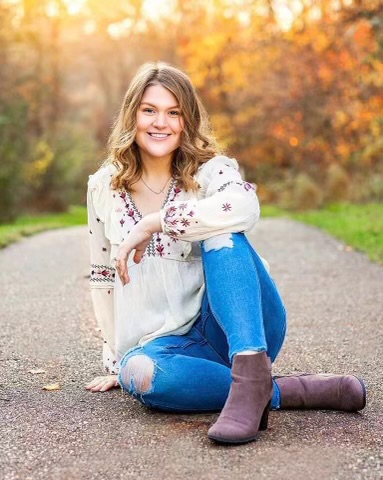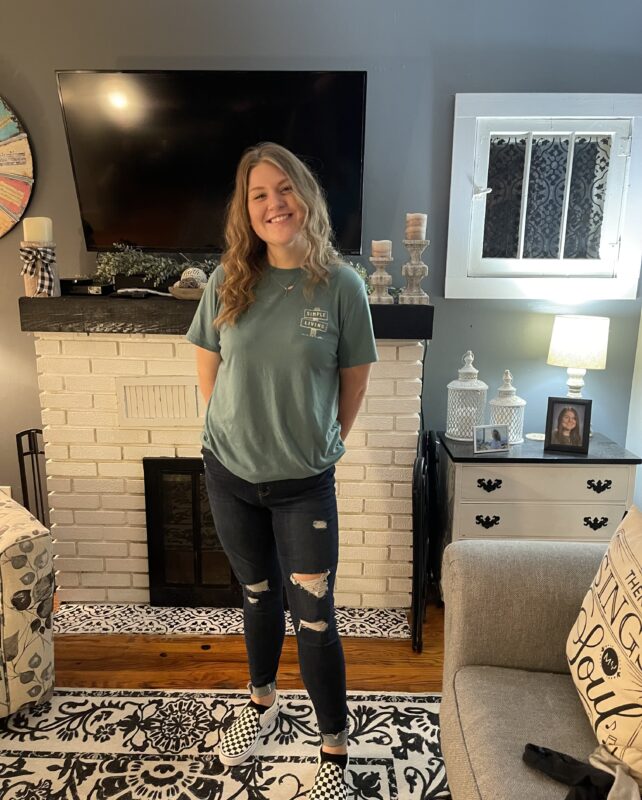
Riley credits bariatric surgery at Akron Children’s as a teen with changing the course of her life.
It’s been 3 years since we last visited Riley Ickes, one of the first teen patients to undergo bariatric surgery at Akron Children’s. At the time, Riley was attending high school online, happily shopping for new clothes, because she was down 63 pounds, and juggling a new exercise routine with an after-school job at Wal-Mart. She was still working closely with Dr. Marnie Walston, the pediatrician with Akron Children’s Healthy Active Living Program, as well as the other members of the team providing support and expertise in nutrition, psychology, and fitness.
Follow the first part of Riley’s weight loss journey beginning with her surgery in the fall of 2020.
Today, 20-year-old Riley is working at Aultman Hospital as a patient transporter and taking evening and weekend classes to become an emergency medical technician (EMT). Riley and her brother, Owen, live independently, renting a house in Canton, and she hopes to stay in the area and join a local fire department when she graduates from her program. She is down approximately 145 pounds!
“I‘ve been at a pretty consistent weight for almost 2 years now and working on building up my muscle mass and strength,” Riley said. “I walk between 5 and 10 miles a day as part of my job, pushing beds, lifting people, things like that, and I am still very consistent with my meal prepping. It makes it a lot easier working long shifts to be consistent.”
She packs her lunches, often centered on items from the various food groups like chicken, turkey sausages, fresh vegetables, fruit and cottage cheese. Having good nutrition is important to fuel her long days. She works from 6 a.m. to 3 p.m. and then often heads to the gym with a friend. Her EMT training class is two nights a week for 3 hours and every other Saturday.
Riley has consulted a plastic surgeon and has plans to have skin removal surgery in the abdominal area at the end of the year or next year. That could realistically be additional weight loss that just isn’t coming off any other way.

Now 20, Riley is working, studying to be a paramedic and living independently (sharing a house with her brother) in Canton.
Reflecting on her decision to have the surgery, Riley believes it was critical for her success and in turning her life around. She had plenty of family support – a critical component of the Healthy Active Living Program – and had demonstrated she had the will to follow-through with the pre- and post-op diet and exercise expectations of the program.
“But,” said Riley, “learning everything that I have learned, I feel like I could have made a little progress but not a lot [without the surgery]. My health issues – like my polycystic ovarian syndrome and hormonal imbalances – would have made this level of success nearly impossible.”
Riley said she really came to count on the support of the Healthy Active Living team. Now, she just has follow-up appointments once a year.
Everything is now about balance.
And where she once was eating almost zero carbohydrates, she now doesn’t fret over special meals out with friends or treating herself to dessert from time to time.
“I definitely enjoy eating healthy foods, but I also know it’s okay to have a little slice of cake or whatever without feeling guilty,” she said. “It’s just a mindset of balancing it out and not making it a habit.”
In addition to the cardio she gets at work, Riley enjoys going to the gym where she takes high intensity interval training (HIIT) classes, jumps on a high-intensity assault bike and focuses on strength training.
And what’s Riley’s advice for other teens struggling with their weight?
“[Surgery] is definitely not something that you can make a decision about right off the bat,” she said. “It’s a tool. It’s not going to make you lose weight and keep the weight off for the rest of your life. I was told to write down in a notebook my daily routine – look at my eating habits and exercise habits. Keep track of that for a few weeks to see if I was making progress to a weight loss goal. You do really need to put in the work. The surgery is not going to fix everything. It’s the mentality too, but, by all means, do your research and see if it’s an option.”

Through surgery and dedication to exercise and balanced eating, Riley has lost 145 pounds and is now maintaining a steady weight.










